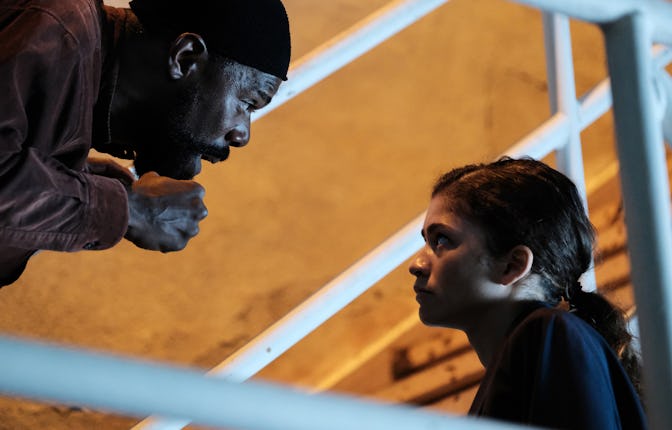D.A.R.E. somehow thinks Euphoria makes drug use look too cool
Is the out-of-touch anti-drug organization watching the same show as the rest of us?

The easiest way to prove you don’t really watch a show is by complaining about an issue that’s already addressed in the show. D.A.R.E., the anti-substance abuse educational organization from your parents’ parents’ heyday, has called out Euphoria for doing what they’ve been trying to prevent since the Reagan administration: make drugs look cool to kids.
In a relatively random message sent to TMZ, D.A.R.E., which stands for Drug Abuse Resistance Education, admonished the HBO hit series for glorifying drug use among teenagers. The series, they argue, is upending parents’ attempts to keep their kids away from the substances. But, they’re not just blaming the show for infesting kids’ minds by aggrandizing destructive behavior — according to the statement, they’re also pissed at “HBO, social media, television program reviewers, and paid advertising” for celebrating the show as a groundbreaking work of art. If you ever tweeted about wanting a friend like Rue Bennett (Zendaya), recommended Euphoria to your friends, or dressed up as drug dealing Fez for Halloween where kids are trick-or-treating, then D.A.R.E wants you to know you’re ruining the youth.
“Rather than further each parent’s desire to keep their children safe from the potentially horrific consequences of drug abuse and other high-risk behavior, HBO’s television drama, Euphoria, chooses to misguidedly glorify and erroneously depict high school student drug use, addiction, anonymous sex, violence, and other destructive behaviors as common and widespread in today’s world.”
Life is rarely binary and neither is Euphoria and its depiction of teenage drug use. Yes, Euphoria does depict Rue’s first time getting high in the series premiere as some sort of beautifully artistic music video at a house party, replete with Yamid Spain’s hauntingly elegant “Feel the Morning on My Face” soundtracking her trip. But, within the eye candy of the series is the bitter pill message of how it only gave her a few seconds of relief from her problems and had her wanting to be rushed to the hospital. The same is true for the first time Rue tries fentanyl: she sheepishly whispers how happy she is after taking the drug, but she only narrowly escaped being taken advantage of by the drug dealer Mouse. And in the Season 2 premiere, as Rue and another teenage girl are sitting outside in a car to await the completion of a drug deal, they’re grabbed out the car windows and forced to strip naked to prove they aren’t wearing any wires. If anything, Euphoria gives an honest portrayal of how feeling good doesn’t mean you’re doing good.
What D.A.R.E. may fail to realize is Euphoria’s drug depictions don’t come from fantasies, but real-life trauma. Sam Levinson, Euphoria’s creator, has repeatedly spoken out about how Rue’s substance abuse journey mirrors his own as a teenager when he would “take anything and everything until I couldn’t hear or breathe or feel,” according to a speech he gave to the audience at the show’s season 1 premiere event. He hasn’t directly responded to D.A.R.E.’s criticism, but he’s dealt with similar views about his show since its inception and views them as misunderstanding the real-life pain behind its writing.
“I found those criticisms frustrating and kind of lazy because they’re essentially about the subjective experience of watching a television show, and not the individual experience of being caught in the painful cycle of addiction,” Levinson wrote to Vulture in an email.
To D.A.R.E.’s credit, they aren’t simply the dying old man on the porch yelling at the kids moving towards a future that looks depressingly different than his past. They’ve offered to open up a conversation with the people behind the show in order to help inform their depictions of teenage drug abuse. “We would welcome the opportunity for our team, including members of our high school-aged Youth Advocacy Board, to meet with individuals at HBO who are involved with producing Euphoria to present our concerns directly.”
But if the conversation D.A.R.E. wants to start with Euphoria is simply them complaining about how kids should follow Nancy Regan’s advice from the 1980s and “Just Say No,” then they need to look at how well that worked for the War on Drugs.